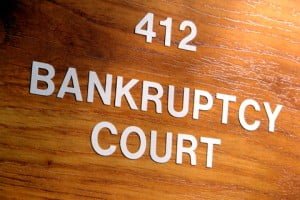
5 Financial Situations Where Bankruptcy Makes Sense

Deciding to file bankruptcy can be confusing. People often choose not to file because of misleading information, lack of understanding and fear of not knowing what will happen in the future. These factors have been known to make financial situations even worse since debtors put off the filing process. Upon gaining a better understanding of how the process can improve their finances, many wish they had filed sooner. So when does it make sense to file bankruptcy? Consulting with a bankruptcy attorney or financial expert can shed light on whether the decision to file is the best solution.
If you find yourself in any of the following situations, filing might make sense:
- Medical debt from illness or injury: While there are options in negotiating payment arrangements, medical facilities have been known to pursue legal action in collecting unpaid medical bills including filing a lawsuit or garnishing wages.
- Pending foreclosure: Chapter 7 bankruptcy may temporarily halt a foreclosure or pending sale, giving homeowners more time to develop a solution. Chapter 13 bankruptcy can help homeowners get caught up on defaulted mortgage payments through a repayment plan.
- Mounting consumer debt: Consumers struggling to make payments on financial obligations due to becoming ill, income reduction or exhausted other financial options may see filing as a way to gain control of their finances, while preventing the need to liquidate retirement funds.
- Divorce debts: Bankruptcy can be a solution when a spouse may not be able to afford repaying debt upon divorce. Chapter 13 may help create a manageable repayment plan if debt cannot be discharged under Chapter 7.
- Job loss or changes in income: Even those who have found a new job can still find it difficult to get caught up on payments such as a vehicle or home loan.
Reference: http://www.bankrate.com/finance/debt/5-money-jams-bankruptcy-can-fix-1

